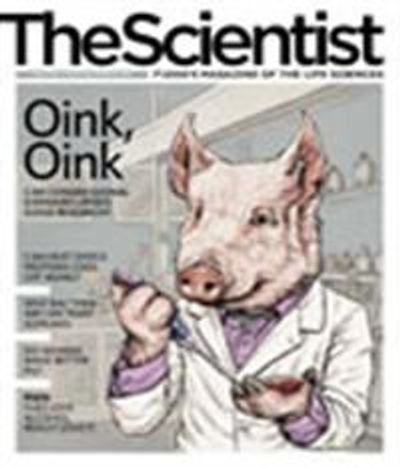Think Outside the Bio-Box
We like to complain, but it’s a great time to be a biologist—as long as you don’t just think about academia.

A recent article in the Wall Street Journal listed the best jobs in America, based on their associated work environment, income, hiring outlook, physical demands, and stress factors. Biologist was ranked as the fourth best job, right behind computer systems analyst and software engineer. The main reasons for the high ranking for biologists? Mostly low job stress, good income and excellent hiring outlook.
Of course, after listening to my friends for many years (and reading numerous online comments in The Scientist), I was surprised that being a biologist was considered a low-stress...
I certainly don’t think that our current situation is worse than in the past. Funding might have been easier to obtain years ago, but there were far fewer alternate career paths if you did not succeed. According to the National Science Foundation, in the late 1970s more than 70 percent of all jobs in biology were in academia. The biotech industry did not even exist. For the most part, if you did not find a job at a college or university, you left science.
After my postdoc position was finished in the 1980s, I applied for dozens of positions before even being invited for an interview. I considered myself quite lucky to finally get a tenure-track position at a university because many of my colleagues were not so fortunate. For example, a good friend of mine was trained as a marine biologist in the 1970s. Although she graduated with a PhD in marine biology and won awards for her research in invertebrate embryology, there simply were no jobs available in her field. After years of unsuccessful looking, she retrained herself in molecular biology and after three postdocs, finally found a university position.
Over the last 30 years, the variety of jobs available to new PhDs in biology has increased substantially. For example, biotechnology as an industry essentially did not exist in 1980. Today, it employs more than 180,000 people in the United States alone. In the 1970s, less than 10 percent of PhDs in biology were employed in industry. Now that figure is over 30 percent. And these careers can be very intellectually and financially rewarding.
So if there are so many jobs available in biology, then why is there a general feeling that the job market is so bad? I suspect that people are not grousing about finding a job, but finding the “right” job, and that usually means a position at a research university.
University jobs are indeed getting harder to find and currently comprise less than half of all available positions for people with PhDs in life sciences. However, the idea that having a position at a research university is the best job possible is specious, although I must confess that I once felt that way myself. Of course, I was trained by university scientists who did not know any other type of career.
I feel this is the real reason why the job outlook in biology seems dim: research professors are training students to be university research scientists instead of preparing them for the broader job market. The result is that many new PhDs are frustrated to find that the specific positions they are trained for either don’t exist or have hundreds of applicants.
Other fields, such as chemical engineering, train their students to work both in academia and in industry. When I was at the University of Utah, many of the graduate students I trained went into the biotech industry and had very successful careers. I myself gave up a tenured full professor position to work at a national laboratory. If the biotech industry had existed when I was a postdoc, I might well have chosen that as my career path.
Universities need to focus on training students for the jobs of the future, rather than creating scientific progeny.1 It is also important to show students that scientific jobs outside of academia can be just as exciting and fulfilling as those inside.
H. Steven Wiley is Lead Biologist for the Environmental Molecular Sciences Laboratory at Pacific Northwest National Laboratory.
Interested in reading more?




